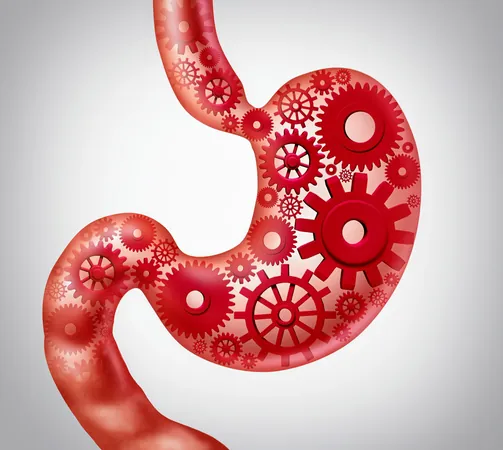
Shocking Link Found Between Alcohol Use and Cannabis Vaping Surge Among Texas Youths!
2024-11-25
Author: Arjun
Recent research from UTHealth Houston reveals alarming news for Texas parents and educators: alcohol consumption is the leading predictor of increased cannabis vaping among youth and young adults, regardless of their demographic background. This study, published in the prestigious journal Social Science & Medicine, highlights a critical public health issue as cannabis vaping usage has surged dramatically.
Cannabis vaping involves using electronic cigarettes to consume liquid tetrahydrocannabinol (THC), the potent active ingredient in cannabis, now widely favored among young people. Astoundingly, the Substance Abuse and Mental Health Services Administration reports that just ten years ago, only 10% of cannabis users opted for vaping; this figure has skyrocketed to around 75% among youth and young adults today. Dr. Dale Mantey, an assistant professor at UTHealth Houston School of Public Health, emphasizes the serious implications this trend poses for health.
The study—spanning middle and high school students across Dallas/Fort Worth, San Antonio, Austin, and Houston—examined the behaviors of cannabis users and non-users over a three-year period from 2019 to 2021. Participants were asked about their experiences with cannabis vaping as well as their alcohol consumption, nicotine usage, and self-identified racial and ethnic backgrounds, along with indicators of mental health such as anxiety and depression.
Initial findings were striking. At the start, 72.7% of respondents reported never having vaped cannabis, whereas 12.7% had tried it, and 14.5% were currently vaping. However, as researchers continued their analysis, they identified a concerning trend: the likelihood of experimenting with vaping was significantly higher among non-Hispanic Black youths compared to their non-Hispanic white peers.
Central to the study was the role of alcohol use, consistently associated with an increased likelihood of trying cannabis vaping. Researchers have termed alcohol a "gateway" substance, which raises the urgency for comprehensive educational strategies. Dr. Mantey insists that addressing issues of alcohol consumption should be intertwined with discussions about nicotine, vaping, and cannabis prevention programs in schools.
"The ultimate goal is to delay the initiation of substance use among youth," Mantey noted. "The longer individuals can be encouraged to wait before trying these substances, the lower their chances of developing an addiction later in life."
As young people become increasingly susceptible to vaping and all its potential dangers—including cognitive impairments, chronic pulmonary damage from low-quality THC products, and legal issues stemming from cannabis's Schedule I classification—parents, educators, and policymakers must act decisively.
This research underscores a pressing need for integrated interventions aimed at curbing both alcohol and cannabis use among the youth of Texas. The health of future generations depends on it!


 Brasil (PT)
Brasil (PT)
 Canada (EN)
Canada (EN)
 Chile (ES)
Chile (ES)
 España (ES)
España (ES)
 France (FR)
France (FR)
 Hong Kong (EN)
Hong Kong (EN)
 Italia (IT)
Italia (IT)
 日本 (JA)
日本 (JA)
 Magyarország (HU)
Magyarország (HU)
 Norge (NO)
Norge (NO)
 Polska (PL)
Polska (PL)
 Schweiz (DE)
Schweiz (DE)
 Singapore (EN)
Singapore (EN)
 Sverige (SV)
Sverige (SV)
 Suomi (FI)
Suomi (FI)
 Türkiye (TR)
Türkiye (TR)